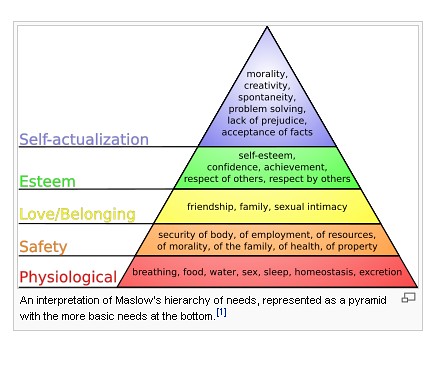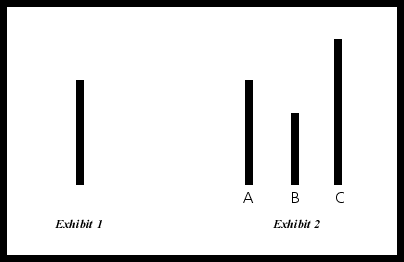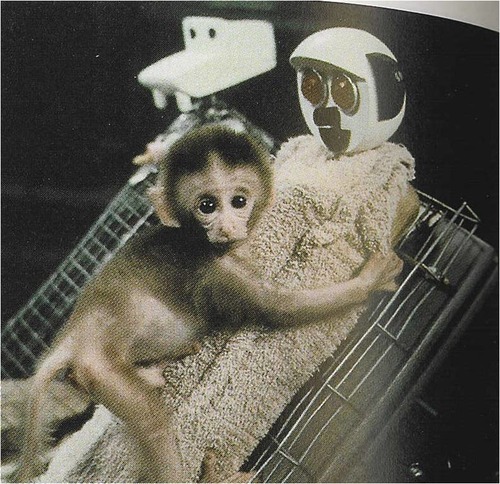OpenStax Psychology 2e - Full
5.0(1)
Card Sorting
1/808
Earn XP
Description and Tags
Study Analytics
Name | Mastery | Learn | Test | Matching | Spaced |
|---|
No study sessions yet.
809 Terms
1
New cards
American Psychological Association
professional organization representing psychologists in the United States
2
New cards
behaviorism
focus on observing and controlling behavior
3
New cards
biopsychology
study of how biology influences behavior
4
New cards
biopsychosocial model
perspective that asserts that biology, psychology, and social factors interact to determine an individual's health
5
New cards
clinical psychology
area of psychology that focuses on the diagnosis and treatment of psychological disorders and other problematic patterns of behavior
6
New cards
cognitive psychology
study of cognitions, or thoughts, and their relationship to experiences and actions
7
New cards
counseling psychology
area of psychology that focuses on improving emotional, social, vocational, and other aspects of the lives of psychologically healthy individuals
8
New cards
developmental psychology
scientific study of development across a lifespan
9
New cards
dissertation
long research paper about research that was conducted as a part of the candidate's doctoral training
10
New cards
empirical method
method for acquiring knowledge based on observation, including experimentation, rather than a method based only on forms of logical argument or previous authorities
11
New cards
forensic psychology
area of psychology that applies the science and practice of psychology to issues within and related to the justice system
12
New cards
functionalism
focused on how mental activities helped an organism adapt to its environment
13
New cards
humanism
perspective within psychology that emphasizes the potential for good that is innate to all humans
14
New cards
introspection
process by which someone examines their own conscious experience in an attempt to break it into its component parts
15
New cards
ology
suffix that denotes "scientific study of"
16
New cards
PhD
(doctor of philosophy) doctoral degree conferred in many disciplinary perspectives housed in a traditional college of liberal arts and sciences
17
New cards
PsyD
(doctor of psychology) doctoral degree that places less emphasis on research-oriented skills and focuses more on application of psychological principles in the clinical context
18
New cards
personality psychology
study of patterns of thoughts and behaviors that make each individual unique
19
New cards
personality trait
consistent pattern of thought and behavior
20
New cards
postdoctoral training program
allows young scientists to further develop their research programs and broaden their research skills under the supervision of other professionals in the field
21
New cards
psyche
Greek word for soul
22
New cards
psychoanalytic theory
focus on the role of the unconscious in affecting conscious behavior
23
New cards
psychology
scientific study of the mind and behavior
24
New cards
sport and exercise psychology
area of psychology that focuses on the interactions between mental and emotional factors and physical performance in sports, exercise, and other activities
25
New cards
structuralism
understanding the conscious experience through introspection
26
New cards
Wilhelm Wundt
established the first psychology laboratory at the University of Leipzig, Germany
27
New cards
Plato
Socrates' most well known pupil. Founded an academy in Athens.
28
New cards
Descartes
French philosopher, nativist, and dualist
29
New cards
Dualism
the presumption that mind and body are two distinct entities that interact
30
New cards
William James
founder of functionalism; studied how humans use perception to function in our environment
31
New cards
Erik Erikson
famous for his 8-stage model of psychosocial development; neo-Freudian
32
New cards
John B. Watson
developed behaviorism ( the study of observable behavior)
33
New cards
Ivan Pavlov
discovered classical conditioning; trained dogs to salivate at the ringing of a bell
34
New cards
Albert Bandura
Social learning theory; Bobo doll experiment
35
New cards
Abraham Maslow
created hierarchy of needs

36
New cards
Lawrence Kohlberg
Theory of Moral Development
37
New cards
Naomi Weisstein
Credited with starting the feminist revolution in psychology
38
New cards
Anna Freud
Continued her father's work in psychoanalysis with an emphasis on children.
39
New cards
Charles Darwin
English natural scientist who formulated a theory of evolution by natural selection (1809-1882)
40
New cards
Democritus
Greek philosopher that said all matter is made of tiny particles called "atomos" or atoms
41
New cards
behaviorist perspective
the psychological perspective primarily concerned with observable behavior that can be objectively recorded and with the relationships of observable behavior to environmental stimuli
42
New cards
psychoanalytic perspective
the perspective that stresses the influences of unconscious forces on human behavior
43
New cards
evolutionary psychology
the study of the evolution of behavior and the mind, using principles of natural selection
44
New cards
cognitive perspective
how we encode, process, store, and retrieve information
45
New cards
The Interpretation of Dreams
the Bible of Psychoanalysis by Freud
46
New cards
sociocultural perspective
perspective that focuses on the relationship between social behavior and culture
47
New cards
critical thinking
thinking that does not blindly accept arguments and conclusions. Rather, it examines assumptions, discerns hidden values, evaluates evidence, and assesses conclusions.
48
New cards
Hypothesis
A testable prediction, often implied by a theory
49
New cards
Stanley Milgram
obedience to authority; had participants administer what they believed were dangerous electrical shocks to other participants; wanted to see if Germans were an aberration or if all people were capable of committing evil actions
50
New cards
Albert Ellis
rational emotive behavior therapy
51
New cards
Critical Thinking
the objective analysis and evaluation of an issue in order to form a judgment.
52
New cards
Introspection
examination of one's own thoughts and feelings
53
New cards
Dissertation
a formal and long paper, written for a degree at a university or college
54
New cards
Herman Ebbinghaus (1850-1909)
created the forgetting curve and serial position effect in memory
55
New cards
Solomon Asch
Conducted famous conformity experiment that required subjects to match lines.

56
New cards
Harry Harlow
Studied attachment in monkeys with artificial mothers

57
New cards
Prefrontal Lobotomy
example of what happens when we rely on our subjective impressions; brain damage before and after the surgery remained the same
58
New cards
Heuristics
mental shortcuts or rules of thumb
59
New cards
Healthy Skpeticism
strive to think critically about information we encounter (regardless of the source)
60
New cards
Facts
observable realities
61
New cards
Opinions
personal judgements, conclusions, or attitudes
62
New cards
Theory
a well-developed set of ideas that propose an explanation of observed phenomena
63
New cards
Hypothesis
a testable prediction about how the world will behave if our idea is correct
64
New cards
Falsifiable
capable of being false
65
New cards
Case Study
in depth study of rare cases (does not tell cause and effect); ex: Phineas Gage, H.M., Little Albert
66
New cards
Anecdote
a study of one person
67
New cards
Naturalistic Observation
watching behavior in real-world settings
68
New cards
High Degree of External Validity
extent to which we can generalize our findings to the real world
69
New cards
Low Degree of Internal Validity
extent to which we can draw cause-and-effect inferences
70
New cards
Observer Bias
the tendency of the observer to unconsciously skew observations to fit the research goal/expectations
71
New cards
Operational Definition
being specific about what is being observed; important to specify how we're measuring our variables ahead of time
72
New cards
Self-Report Measures and Surveys
surveys and questionnaires;
advantages:
-easy to administer
-subtle information
disadvantages:
-may not have insight
-may not be honest
advantages:
-easy to administer
-subtle information
disadvantages:
-may not have insight
-may not be honest
73
New cards
Population
everyone in a particular group
74
New cards
Sample
a portion of a population to be studied
75
New cards
Random Selection
procedure that ensures every person in a population has an equal chance of being chosen to participate
76
New cards
Reliability
repeatable/consistency in the data or results
77
New cards
Validity
measure of something being measured (if valid, also reliable)
78
New cards
Positive Impression Management
faking good (better than reality)
79
New cards
Malingering
faking bad (worse than reality)
80
New cards
Ratings Data
rating the behavior of others
81
New cards
Halo Effect
tendency of ratings of one positive characteristics to spill over to influence the ratings of other positive characteristics
82
New cards
Leniency Effect
tendency of raters to provide ratings that are overly generous (opposite of Halo Effect)
83
New cards
Archival Research
looking back at old records to obtain data, hard copy or electronically
84
New cards
Longitudinal Research
a research that tests the same group of individuals over an extended period of time
85
New cards
Attrition Rates
dropouts/people lost over the course of the study
86
New cards
Cross-sectional Research
a "snapshot;" a researcher compares multiple segments of the population at a given time
87
New cards
Cohort Effect
an effect that different age groups give different reaction results not necessarily due to their age
88
New cards
Correlational Design
research design that examines the extent to which two variables are associated; depicted in a scatter plot; correlations have predictive value; CORRELATION DOES NOT MEAN CAUSATION
89
New cards
Negative Correlation
as the value of one variable changes, the other goes in the opposite direction (one goes up, other goes down)
90
New cards
Positive Correlation
as the value of one variable changes, the other goes in the same direction (both goes up)
91
New cards
Confounding Variable
third-variable problem
92
New cards
Illusory Correlation
when people believe that relationships exist between two things when no such relationship exists
93
New cards
Confirmation Bias
looking for evidence to support a preexisting belief and ignoring evidence that contradicts it
94
New cards
Experimental Group
receives the manipulation
95
New cards
Control Group
does not receive the manipulation
96
New cards
Independent Variable
experimenter manipulates
97
New cards
Dependent Variable
experimenter measures to see whether manipulation had an effect
98
New cards
Confounds
any difference between the experimental and control groups, other than the independent variable; makes it impossible to interpret any findings
99
New cards
Cause and Effect
possible to infer, w/ random assignment and manipulation of independent variable
100
New cards
Placebo Effect
blind